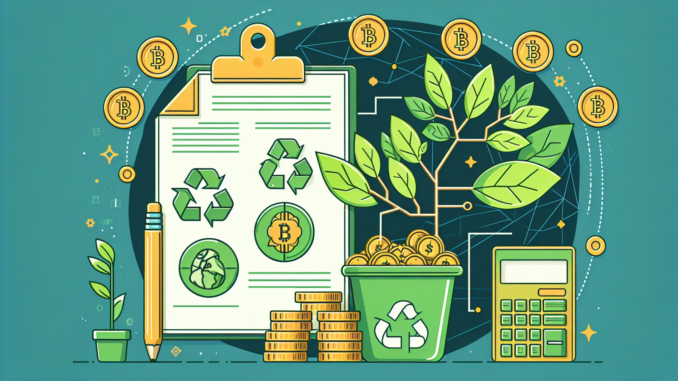
The Importance of Cryptocurrencies and Plastic in Climate Protection
Cryptocurrencies and plastic—two topics that at first glance seem to have little in common—are now at the center of a debate over climate protection and sustainable development. A coalition of global leaders has proposed to increase taxes on both areas to finance climate and development initiatives. This article explains why this proposal is gaining broad support and what impact it could have.
The Background: Climate Change and Financing Needs
The fight against climate change requires enormous financial resources. The United Nations and other international organizations have repeatedly pointed out that additional funds are needed to finance environmental programs and achieve developmental goals. At the same time, plastic pollution is an increasing problem that endangers ecosystems worldwide. A tax on plastic products could not only reduce consumption but also generate urgently needed funds for environmental protection projects.
The Proposal: Crypto and Plastic Taxation
Against the backdrop of these challenges, a group of economic experts, former heads of state, and environmental activists has proposed higher taxes for cryptocurrencies and plastic products. The idea is based on the consideration that both the crypto sector and the plastic industry generate significant profits, which could contribute to tackling global environmental problems. The taxation of cryptocurrencies, in particular, aims to compensate for the energy consumption associated with the mining process, which leaves a substantial ecological footprint.
Analysis of the Impact on the Crypto Market
The taxation of cryptocurrencies has both supporters and critics. On one hand, it is argued that such a tax could make a much-needed contribution to environmental protection by curbing environmentally harmful practices and creating new financing possibilities for climate-friendly technologies. On the other hand, many in the crypto community fear a negative impact on innovation and investments in the crypto sector. A tax could hinder the growth of young blockchain projects and reduce private investor participation in the crypto market.
The Role of the Plastic Economy
Similar to cryptocurrencies, the taxation of plastic products could encourage consumers and companies to seek more environmentally friendly alternatives. Such taxes could not only reduce the amount of plastic produced but also promote the development of sustainable materials. However, implementation requires a careful balance to meet both environmental and economic interests. Uncontrolled tax increases could otherwise have negative economic impacts and lead to a rise in living costs.
Conclusion: A Step in the Right Direction?
While the proposal to tax both cryptocurrencies and plastic more heavily is still in its early stages, it indicates a potential paradigm shift in how environmental protection and the economy can be united. It offers an interesting possibility to generate the necessary financial resources for climate protection while simultaneously bringing about structural changes in environmentally damaging industries. The success of such measures, however, depends on how well they are designed and implemented. An open dialogue between politics, business, and civil society could help develop a balanced and effective regulatory framework.
Leave a Reply